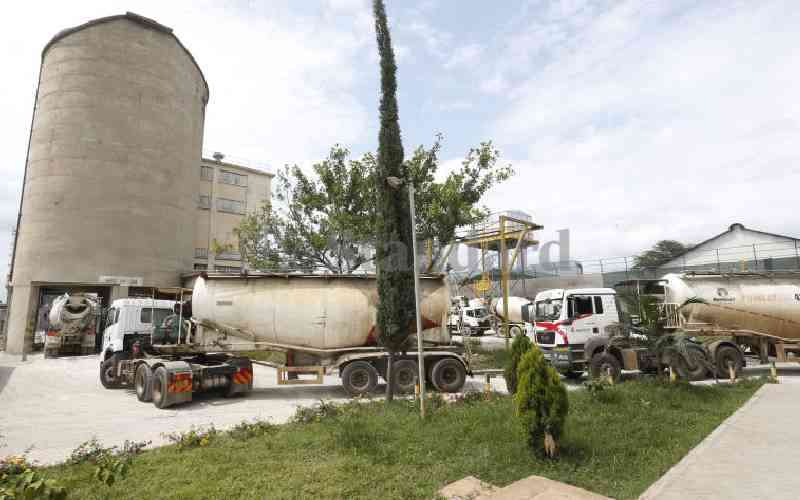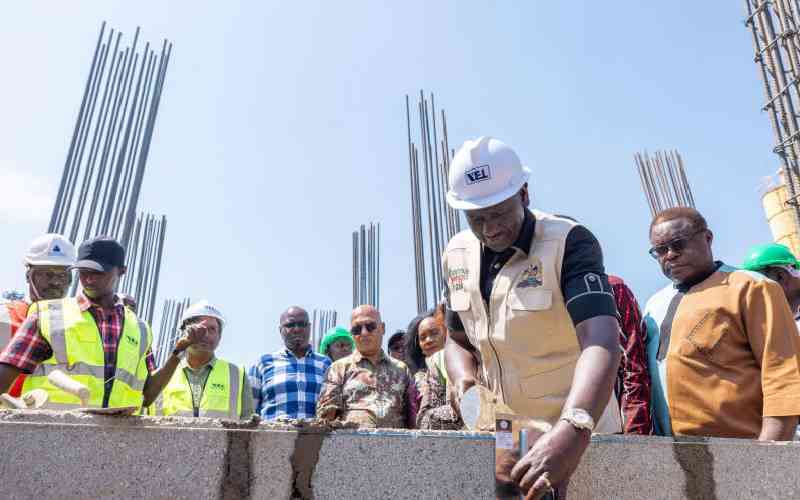
City tycoon Ramji Manji Shamji unlawfully acquired the title deed of a prime property in Parklands, Nairobi.
Justice Christine Ochieng found that Ramji used forged documents and deceptive practices on the late businessman Rajanikant Nathoobhai Shah in 2001.
The Environment and Lands Court ordered the Lands Registrar to cancel Ramji’s documents on the property, which was allocated to Shah in 1983.
The estate, represented by Arvinlal Nathoo Shah, argued that Ramji had fraudulently acquired the land title.
Ramji, along with Paul Githaiga Ng’ang’a, was accused of improperly obtaining the title deed from Edward Nthuli, who had allegedly sold it to Ng’ang’a under dubious circumstances.
During the hearing, Nthuli filed defense, denying ownership of the land and claiming that the transaction involving Ramji was fraudulent.
Nthuli argued that the land transfer to Ramji was not authorised and that he never consented to the sale.
He maintained that the transaction was executed without his knowledge and that he had not authorized the transfer.
On the other hand, Ng’ang’a and Ramji Ramji, a well-known tycoon with significant business interests, presented a defense that included a historical overview of the land.
They insisted that Ramji was the rightful owner, having developed the land significantly.
They contested the claims of fraud and maintained that they had obtained all necessary approvals and clearances for the land transactions.
Rajnikant Shah, testifying in court, produced documents to support his claim. He presented his Letter of Allotment, a receipt for fees paid on September 9, 1992, and a Grant dated December 6, 1983, as evidence.
Shah detailed the procedural hurdles he faced, including the delay in construction due to a sewer line passing through the property and the subsequent receivership of Trust Bank, which held his funds.
Despite these issues, Shah asserted that his title deed, issued in 1983, was genuine and had not been cancelled.
Shah also claimed that Shamji’s title deed contained a Deed Plan copied from his, arguing that two titles couldn't share the same plan.
He asserted that Shamji’s title, issued in 2001, was invalid since Shah’s original title and Deed Plan remained in his possession.
The defendants, Shamji and his Son Harish Ramji Patel and Ng’ang’a offered a narrative of legitimate acquisition and development.
 The Standard Group Plc is a multi-media organization with investments in media
platforms spanning newspaper print operations, television, radio broadcasting,
digital and online services. The Standard Group is recognized as a leading
multi-media house in Kenya with a key influence in matters of national and
international interest.
The Standard Group Plc is a multi-media organization with investments in media
platforms spanning newspaper print operations, television, radio broadcasting,
digital and online services. The Standard Group is recognized as a leading
multi-media house in Kenya with a key influence in matters of national and
international interest.
 The Standard Group Plc is a multi-media organization with investments in media
platforms spanning newspaper print operations, television, radio broadcasting,
digital and online services. The Standard Group is recognized as a leading
multi-media house in Kenya with a key influence in matters of national and
international interest.
The Standard Group Plc is a multi-media organization with investments in media
platforms spanning newspaper print operations, television, radio broadcasting,
digital and online services. The Standard Group is recognized as a leading
multi-media house in Kenya with a key influence in matters of national and
international interest.











